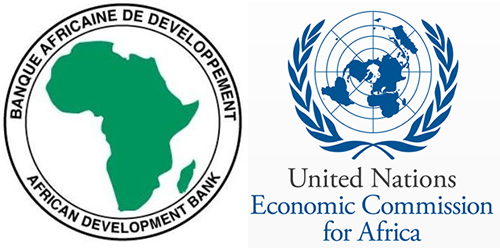AfDB and ECA pledge greater support to the success of AfCFTA
 The African Development Bank (AfDB) and the United Nations Economic Commission for Africa (UNECA) have jointly pledged greater support to the success of the African Continental Free Trade Area (AfCFTA) strategy to integrate Africa.
The African Development Bank (AfDB) and the United Nations Economic Commission for Africa (UNECA) have jointly pledged greater support to the success of the African Continental Free Trade Area (AfCFTA) strategy to integrate Africa.
They thanked all partners including the UN agencies for their support and honoured to be associated with this great and historic moment in separate releases to the Ghana News Agency.
It said the official historical signing ceremony in Kigali, Rwanda, shows the resolve of African leaders to bring the continent’s diversity together and make the flagship project of the African Union Agenda 2063 a reality.
It indicated 44 African countries signed the AfCFTA during the 18th Extraordinary Session of AU Summit, while a total of 50 signed either the agreement or the Kigali Declaration underscoring their commitment to the agreement, which aimed at doubling intra-African trade by removing non-tariff and tariff barriers on goods and services.
Again, 27 countries also signed these separate AU Protocol on Free Movement of People, which complements the AfCFTA by providing for visa-free travel, the right of residency and the right of business or professional establishment for citizens between signatory countries.
To accelerate trade facilitation, the AfDB has invested more than $20 million over the past five years in trade agreement support, and cross-border transport and energy soft infrastructure and was committed to support the building of the institutional and human capacities of the Continental Free Trade Area Secretariat.
Dr Akinwumi Adesina, President of AfDB, said “The Continental Free Trade Area will stimulate intra-African trade by up to $35 billion per year, creating a 52 percent increase in trade by 2022; and a vital $10 billion decrease in imports from outside Africa.
“Free trade will bring collective benefits and shared wealth for all African nations, especially the landlocked countries. So, we must accelerate investments in regional and national infrastructure, especially, to boost connectivity, reduce costs and raise competitiveness,” Adesina said.
He applauded the African Union Commission and the Economic Commission for Africa.
“This is Africa’s time and Africa can no longer be ignored. Africa’s food and agriculture market will hit $1 trillion by 2030. Household consumption will hit $2.5 trillion, with business-to-business expenditure at $3.5 trillion by 2025. There’s no doubt, Africa is where to invest,” President Adesina stressed.
According to Adesina, that is why infrastructure features prominently in the Bank’s High five priorities to Light up and power Africa; Feed Africa; Integrate Africa; Industrialize Africa; and Improve the quality of life for the people of Africa, to ensure that no country was left behind in its efforts to connect Africa’s 54 countries into a mutually profitable free trade area.
In the last five years, the Bank’s commitments to infrastructure have totalled more than $12 billion, mostly in cross-border transport, energy, finance and ICT connectivity and the Bank had worked closely with its partners to identify and undertake regional infrastructure projects under the Programme for Infrastructure Development in Africa (PIDA) with a $10 million grant.
The Executive Secretary of UNECA, Vera Songwe, said the AfCFTA agreement would come into operation as soon as all member states ratify it for full implementation.
She said a AfCFTA Country Business Index was launched by the ECA as a tool to keep track of implementation, through periodic surveys of business opinions on the real impact of the agreement on trade.
“We affirmed the necessity to leave no one behind, as defined in the Sustainable Development Goals (SDGs), by making sure everyone benefits from the new opportunities created by the AfCFTA
According to the ECA, among the key beneficiaries will be small and medium sized enterprises, accounting for 80 percent of the regions businesses, women; who represent 70 percent of the informal cross-border traders; and the youth, who will be able to find new employment avenues.
Mr Moussa Faki Mahamat, Chairperson of the African Union Commission thanked the AfDB and ECA especially for its support during the more than two years of negotiations, and again the negotiators, the CFTA Champion, Mr Mahamadou Issoufou, the President of the Republic of Niger, for doing an excellent job in making the initiative a reality for Africa.
He called upon African member states to also sign the Protocol on the free movement of persons, enabling the creation of an African passport.
Source: GNA
